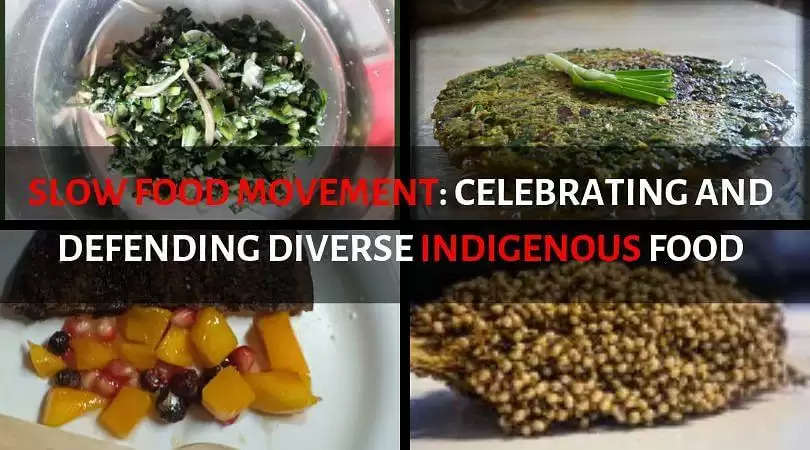FEATURE | Slow Food Movement: Bringing communities together

By Ibankyntiew Mawrie| JUNE 08, 2019:
With an aim to help communities realize the importance of indigenous food system and its contribution towards food sovereignty and nutrition, the North-East Slow Food and Agro-biodiversity Society organised the monthly Mei-Ramew Farmers' Market today at their office premises in Laitumkhrah, Shillong.
"Through this farmers' market, we share our knowledge on various locally grown edibles and we also try to show the communities that it is possible to cook tasty meals with the same set of food items that they get locally," NESFAS Chairperson, Phrang Roy told The Northeast Today here on Saturday.
Roy informed that this initiative was started in 2017 and it is usually held once a month (every second Saturday) and so far, as many as 120 communities from across the state have come forward to share their knowledge and recipes for local cuisines and edibles.
The market is also being replicated by NESFAS partners in other states of the Northeast and in Meghalaya, the same is being held in Jaintia Hills, Ri Bhoi and West Khasi Hills.
FAST FOOD VS SLOW FOOD
With the advent of fast food industry, it is becoming all the more difficult to preserve the age-old knowledge on indigenous and nutritious food and to get the youths and children interested in indigenous delicacies.
When asked about the challenges, Roy, who is also a retired diplomat, said that in a fast moving world where the demand is greater than supply, local farmers depend on subsidized and high-yielding seeds to increase production in a short span of time.
"Because of this, farmers give away their seeds and opt for the subsidized seeds. For eg, there are about 12 varieties of millets in Sohra Rim and Khat-ar-shnong, but now they are down to 5," said Roy.
Amid the competition from the fast food industry, NESFAS has been working towards strengthening the local communities, encouraging them to preserve the indigenous food.

"In the case of millets, we have managed to get involved with the communities and exchanged seeds with them and fortunately, the number has gone up again," he added.
Roy also emphasized on the need to have more private undertakings which are into slow food like cafes, restaurants to further the slow food movement.
LOST AND FOUND INDIGENOUS EDIBLES/CUISINES
For the past many years, NESFAS has been trying to preserve and document the types of indigenous edibles, cuisines and delicacies found across the state and Northeast as a whole.
"Through the 'Ark of Taste' programme, we have been able to discover and collect over 90 items which are forgotten. We are still working closely with communities to gather more knowledge and validate the nutrition value of the food items and share it with the world," said the NESFAS chairperson.
Roy also informed that they are currently collaborating with local communities and schools, seeking their support in preserving the indigenous edibles by growing nutritious and organic vegetables in their gardens.

NUTRITION MATTERS
Considering the fact that the nutrition status in the state of Meghalaya is very dismal, there is a need to focus on the types of food that are available in the market.
During a discussion with the media over special indigenous cups of local beverages and delicacies on Saturday, NESFAS representatives explained why there is an urgent need to have our own professional testing centre in the state to determine the nutritious value of the food items and also to classify the poisonous herbs and non-poisonous herbs particularly mushrooms.
Suggestions on the need to promote innovation using local resources was highlighted. "It is a long battle but we need to work together with the grass-root farmers, to encourage them to lead the movement, to raise their voices and to empower them" added Roy.
Various other issues were highlighted during the discussion ranging from shifting cultivation, privatization of land, monetization of local fruits and vegetables besides others.
"We cannot live in isolation. Knowledge needs to be shared amongst communities and there is an urgent need to strengthen our communitoes and make them equal partners," opined Roy.
(The writer can be reached at iban@thenortheasttoday.com or mawrie.iban@gmail.com)

















